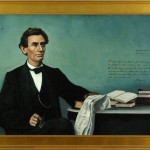A Spontaneous International Law Week at MULS
 This week, you will notice, is chock-full of talks and events related to international law and human rights, thanks to the efforts and interest of MULS student organizations.
This week, you will notice, is chock-full of talks and events related to international law and human rights, thanks to the efforts and interest of MULS student organizations.
Today (Monday, October 4th) the National Lawyers Guild student chapter hosted human rights attorney Eric Sirotkin to give a talk on “Lawyering for Human Rights in the 21st Century: Journey from Soweto to Pyongyang.” Mr. Sirotkin’s inspiring talk about his own work in Latin America, Africa, and Asia communicated the important role of lawyers in peacemaking around the globe. As Executive Director of the Ubuntuworks Peace Education Project, he was able to offer students practical advice on how to use their legal skills to be compassionate advocates. Mr Sirotkin will be dining with MULS students this evening to continue the dialogue on how to work with and for people around the world seeking peace.
Tomorrow (Tuesday, October 5, at noon) the Dispute Resolution Society & the Association for Women in Law will host Lucy Reed, a partner at the international law firm Freshfields Bruckaus Deringer and head of their international arbitration group, to hear her talk “Women & Negotiation: Lessons Learned From Around the World.”
Finally, on Wednesday (October 6, also at noon), the International Law Society will host Bertha Oliva, General Coordinator of the Committee of Families of the Detained and Disappeared in Honduras (COFADEH), who will be sharing her story of three decades of searching for truth and justice following the disappearance of her husband.
In many ways this spontaneous ordering of events amounts to a thematic international law week, with the fortunate result of the world coming to MULS.

